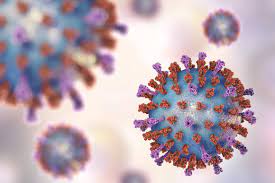Respiratory Syncytial Virus (RSV):

The US Food and Drug Administration (FDA) recently approved the first vaccine that protects newborns from Respiratory Syncytial Virus (RSV).
- Respiratory Syncytial Virus (RSV) is a common respiratory virus.
- RSV is one of the most frequent causes of childhood illness.
- It usually causes mild, cold-like symptoms.
- Premature infants, babies younger than 6 months old, people over age 65, and people who have a compromised immune system, chronic lung disease, or congenital heart condition can get a more severe case of RSV.
- A severe infection leads to pneumonia and bronchiolitis.
- RSV spreads from person to person through-
- The air by coughing and sneezing;
- Direct contact, such as kissing the face of a child who has RSV;
- Touching an object or surface with the virus on it, then touching your mouth, nose, or eyes before washing your hands;
- People who have an RSV infection are usually contagious for 3 to 8 days. But sometimes infants and people with weakened immune systems can continue to spread the virus for as long as 4 weeks.
- Symptoms: The symptoms of RSV infection usually start about 4 to 6 days after infection. They include-
- Runny nose,
- Decrease in appetite,
- Cough,
- Sneezing,
- Fever,




